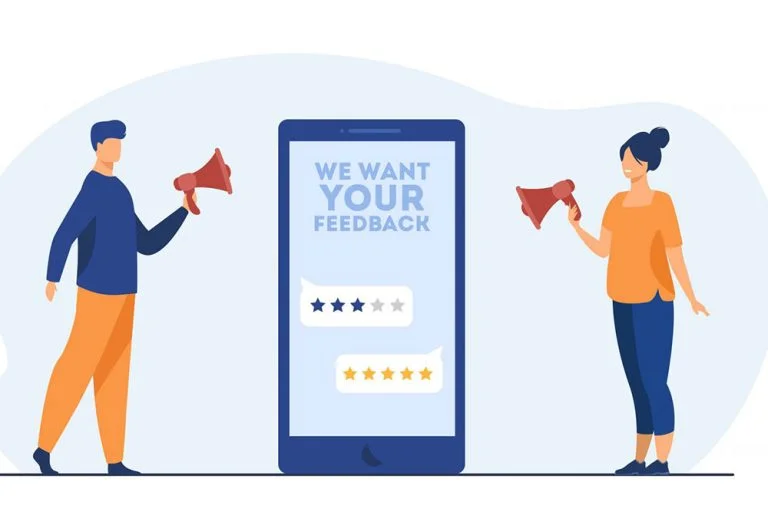TABLE OF CONTENTS
-
TABLE OF CONTENTS
- What is Artificial Intelligence?
- The Connection Between AI And Digital Marketing:
- What are the different types of AI in marketing?
- What are the challenges faced by AI Marketing?
- What are some benefits of using AI marketing?
- How Is Artificial Intelligence Transforming Digital Marketing?
- 10 Ways AI Will Change the Future of Digital Marketing in 2023:

A survey by the Content Marketing Institute revealed that 60% of marketers anticipate a transformative impact from AI on content creation and distribution. Additionally, 50% believe it will reshape how they target and tailor their messaging.
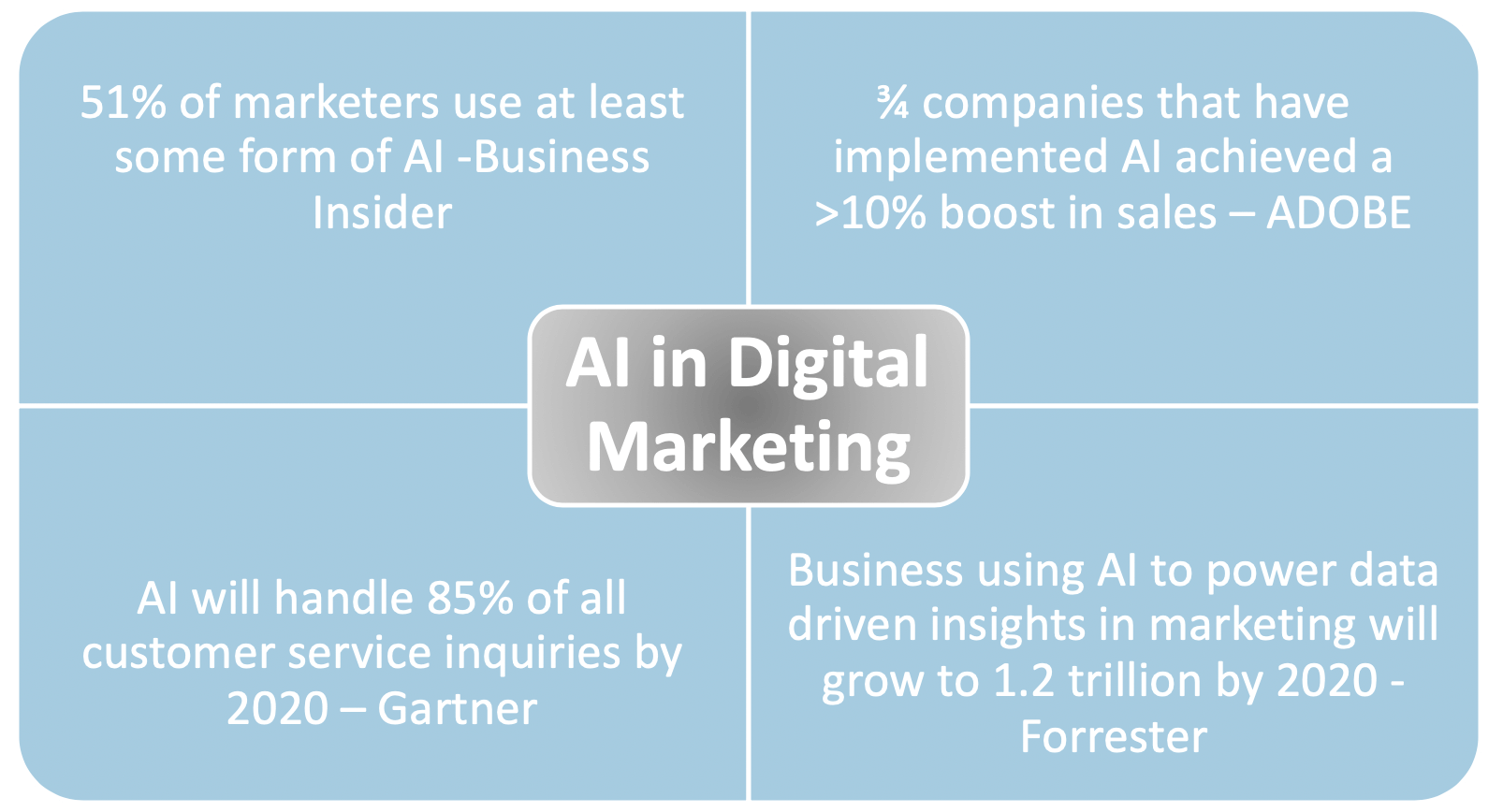
Furthermore, an Adobe study demonstrated that chatbots powered by AI could boost conversion rates by as much as 50%. With ongoing advancements in AI technology, it’s probable that it will assume an even more significant role in digital marketing strategies. This evolution will aid businesses in fine-tuning their campaigns and gaining deeper insights into customer interactions for enhanced engagement.
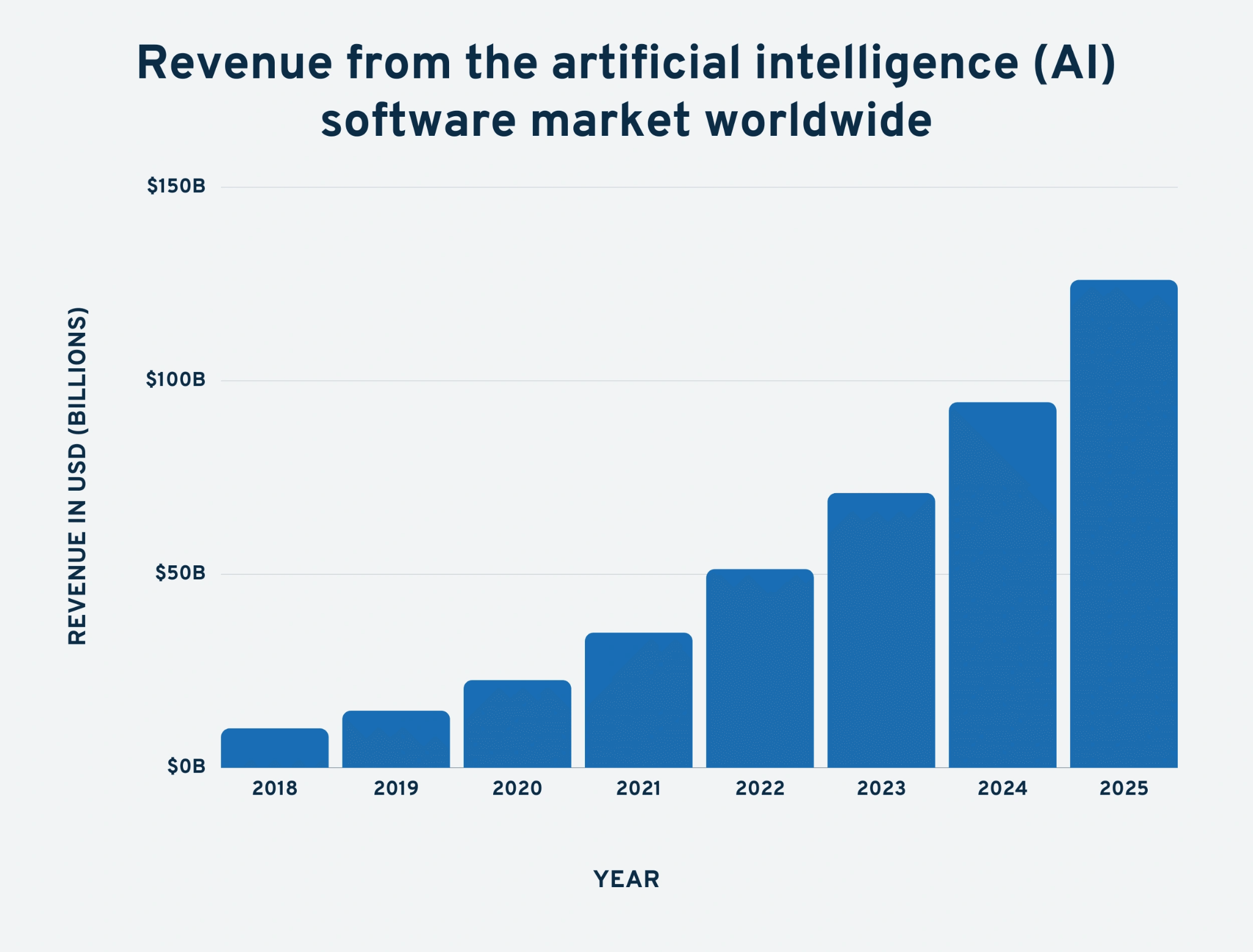
What is Artificial Intelligence?
Artificial Intelligence algorithms strive to replicate human thought processes for task completion. To achieve this, they rely on a continuous stream of top-notch data. Have you ever pondered the fervent pursuit of data by numerous businesses? It’s largely driven by the quest to construct proficient AI systems.

The Connection Between AI And Digital Marketing:
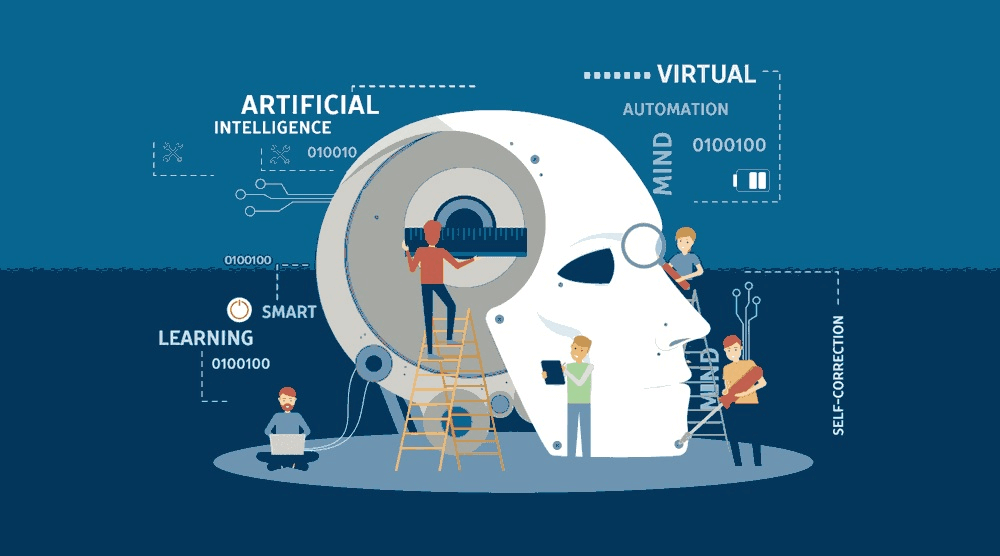
-
1. Audience Targeting:
-
2. Campaign Analysis:
-
3. Customer Engagement:
-
4. Effective marketing:
-
5. Can get more profound insights:
-
6. Increase Return of Investment (ROI):
Boosting ROI through AI involves leveraging intelligent algorithms to optimize marketing efforts. By analyzing data, AI refines targeting, personalizes content, and automates processes. This leads to higher conversion rates and improved campaign performance, ultimately maximizing the return on investment for businesses in the digital realm.
What are the different types of AI in marketing?
- Predictive Analytics: AI algorithms analyze historical data to forecast future trends and consumer behavior. This enables marketers to make informed decisions on product development, pricing, and content strategies.
- Chatbots and Virtual Assistants: These AI-driven tools engage with customers in real-time, providing instant responses to queries, offering product recommendations, and assisting with transactions, enhancing customer service and experience.
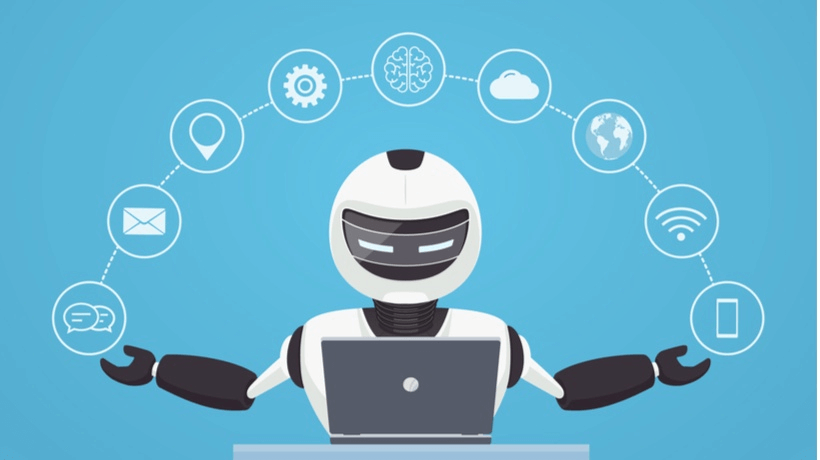
- Natural Language Processing (NLP): NLP enables AI to understand and interpret human language. It’s used in sentiment analysis, chatbots, and content optimization, allowing for better communication and personalized content creation.
- Image and Video Recognition: AI can analyze visual content, such as images and videos, to identify objects, people, and scenes. This is valuable for tasks like visual search, user-generated content analysis, and targeted advertising.
- Recommendation Engines: These use AI to analyze user behavior and preferences to suggest products or content, enhancing cross-selling and up-selling opportunities.
- Optimization Algorithms: AI-driven algorithms refine marketing strategies by automating tasks like ad placement, content creation, and email campaigns, leading to more effective and efficient campaigns.
- Segmentation and Targeting: AI analyzes customer data to categorize audiences based on demographics, behaviors, and preferences. This ensures that marketing efforts are tailored to specific customer segments for higher engagement.
- Content Generation: AI tools generate written content, such as blog posts or product descriptions, based on provided parameters. This streamlines content creation processes and ensures consistency.
- Dynamic Pricing: AI adjusts pricing based on real-time market demand, competition, and customer behavior, maximizing revenue and competitiveness.
- Emotion Analysis: This type of AI gauges emotional responses from text or voice, aiding in sentiment analysis for feedback, reviews, and social media interactions.
These types of AI in marketing collectively empower businesses to make data-driven decisions, enhance customer experiences, and optimize their marketing strategies for maximum effectiveness and ROI.
What are the challenges faced by AI Marketing?
- Data Quality and Availability: AI relies on large, high-quality datasets. Ensuring data accuracy, relevance, and accessibility can be a significant hurdle, especially for businesses with limited resources.
- Privacy and Compliance: Handling customer data raises concerns about privacy and compliance with regulations like GDPR and CCPA. Striking a balance between personalization and respecting privacy is crucial.

- Algorithm Bias and Fairness: AI algorithms can inadvertently perpetuate biases present in the training data. Ensuring fairness and avoiding discrimination in targeting and content recommendations is a critical concern.
- Integration with Existing Systems: Integrating AI into existing marketing technology stacks can be complex. Compatibility issues, legacy systems, and the need for specialized expertise can pose challenges.
- Skill Shortages and Expertise: Implementing AI effectively requires specialized skills in data science and machine learning. Many businesses face a shortage of talent in these areas, making it difficult to leverage AI to its full potential.
- Interpretability and Transparency: Understanding how AI models arrive at their decisions is essential for building trust and compliance. Ensuring transparency and interpretability of AI-driven insights can be a technical challenge.
- Cost and ROI Justification: Implementing AI can be resource-intensive. Demonstrating a clear return on investment, especially for smaller businesses, can be a hurdle.
- Continuous Learning and Adaptation: AI models need to be continually updated and refined to stay effective. Adapting to changing consumer behavior and market trends requires ongoing effort and resources.
- Customer Acceptance and Trust: Building trust in AI-driven marketing efforts is vital. Ensuring that customers understand and accept AI-driven personalization is a significant challenge.
- Ethical Considerations: AI marketing raises ethical questions about the use of personal data, the potential for manipulation, and the overall impact on society. Striking a balance between business goals and ethical considerations is a challenge.
Navigating these challenges requires a thoughtful and strategic approach to AI implementation in marketing, with a focus on data ethics, compliance, and customer-centricity.
What are some benefits of using AI marketing?
- Enhanced Personalization: AI enables hyper-personalized marketing campaigns by analyzing vast amounts of data to understand individual preferences, behaviors, and purchase history. This leads to more relevant and engaging content for each customer.
- Improved Customer Engagement: AI-powered chatbots and virtual assistants provide immediate and personalized responses to customer queries, boosting engagement and satisfaction. This round-the-clock availability enhances the customer experience.
- Optimized Ad Campaigns: AI algorithms can analyze data in real-time to optimize ad placements, targeting, and messaging for maximum impact. This leads to higher conversion rates and a better return on ad spend.
- Predictive Analytics: AI can forecast future trends and consumer behavior based on historical data, allowing businesses to make informed decisions about product development, pricing, and marketing strategies.
- Time and Resource Efficiency: Automation of repetitive tasks, such as email marketing, content creation, and data analysis, frees up valuable time and resources. This allows marketers to focus on higher-level strategy and creativity.
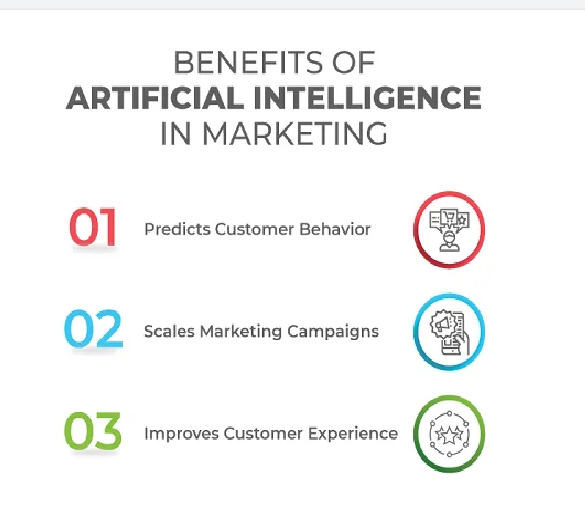
- Improved Customer Segmentation: AI algorithms categorize audiences based on demographics, behaviors, and preferences, allowing for more precise targeting. This ensures that marketing efforts are directed at the most receptive audiences.
- Content Optimization: AI-driven tools can analyze content performance and suggest improvements for SEO, readability, and user engagement. This leads to higher visibility and effectiveness of marketing materials.
- Enhanced Customer Insights: AI provides in-depth insights into customer behavior, preferences, and feedback. This knowledge allows businesses to make data-driven decisions and tailor their offerings to meet customer needs.
- Dynamic Pricing Strategies: AI can adjust pricing in real-time based on market demand, competition, and customer behavior. This maximizes revenue and maintains competitiveness.
- Competitive Advantage: Adopting AI in marketing can give businesses a competitive edge by allowing them to stay at the forefront of technological advancements and deliver superior customer experiences.
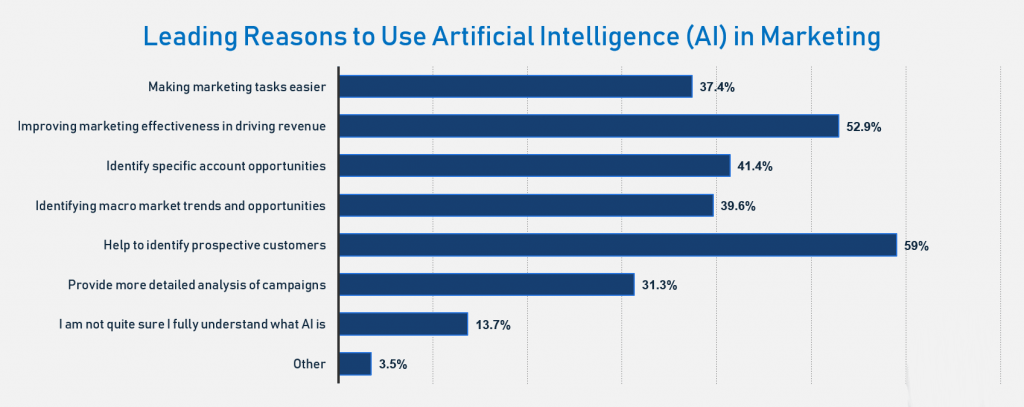
Overall, AI marketing empowers businesses to operate more efficiently, connect with customers on a deeper level, and achieve higher levels of success in a rapidly evolving digital landscape.
How Is Artificial Intelligence Transforming Digital Marketing?
- Generating High-Quality Content: AI excels in producing high-quality content by analyzing data, understanding context, and applying natural language generation. It streamlines content creation, ensuring relevance, coherence, and engagement for diverse audiences.
- Enhancing Customer Experience: AI elevates customer experiences through personalized interactions, instant responses, and tailored recommendations. It streamlines support, boosts engagement, and fosters satisfaction, creating a seamless and gratifying journey for customers.
- Automating Tasks: AI streamlines operations by automating tasks. It handles repetitive processes with precision and efficiency, freeing up human resources for higher-level strategic thinking and creative endeavors in various industries.
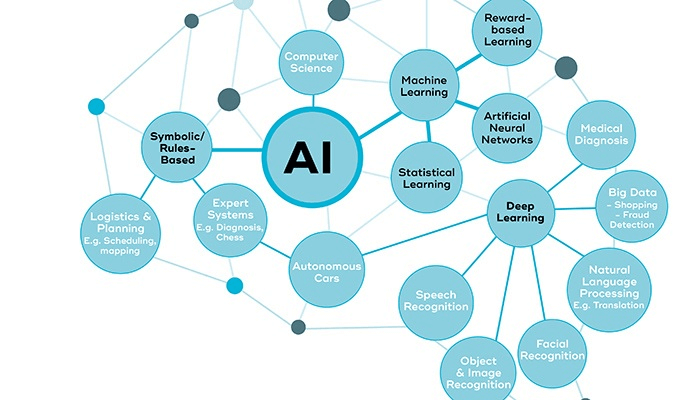
- Personalizing Messaging: AI customizes messaging by analyzing data to understand individual preferences and behaviors. It tailors content and recommendations, creating a more engaging and relevant experience for each customer.
- Optimising Campaigns: AI refines campaigns by analyzing data in real-time. It optimizes targeting, messaging, and ad placement, leading to higher conversion rates and improved return on investment for businesses in digital marketing.
10 Ways AI Will Change the Future of Digital Marketing in 2023:
-
1. AI-Powered Personalization:
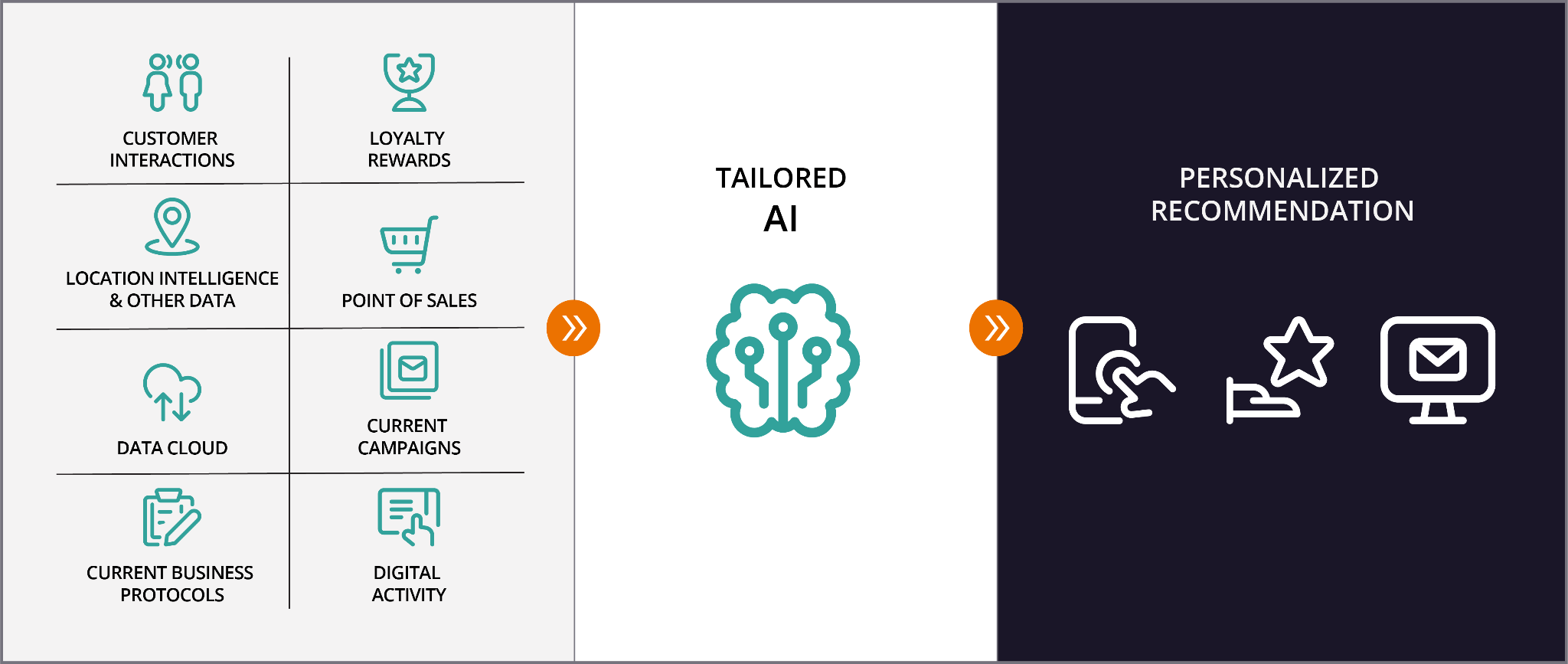
-
2. AI-Powered Chatbots:
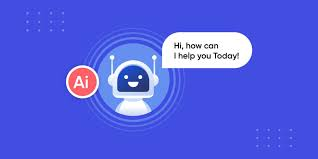
So, how does an AI chatbot work on a fine day?
-
3. Predictive Analytics:
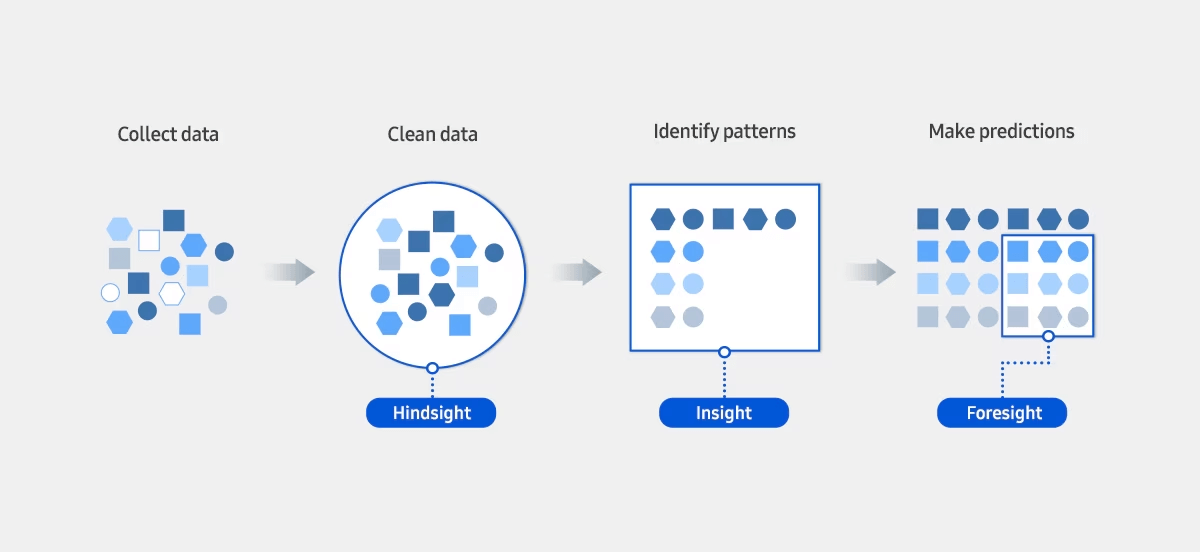
How does Predictive Analytics work?
-
4. AI-Generated Content:
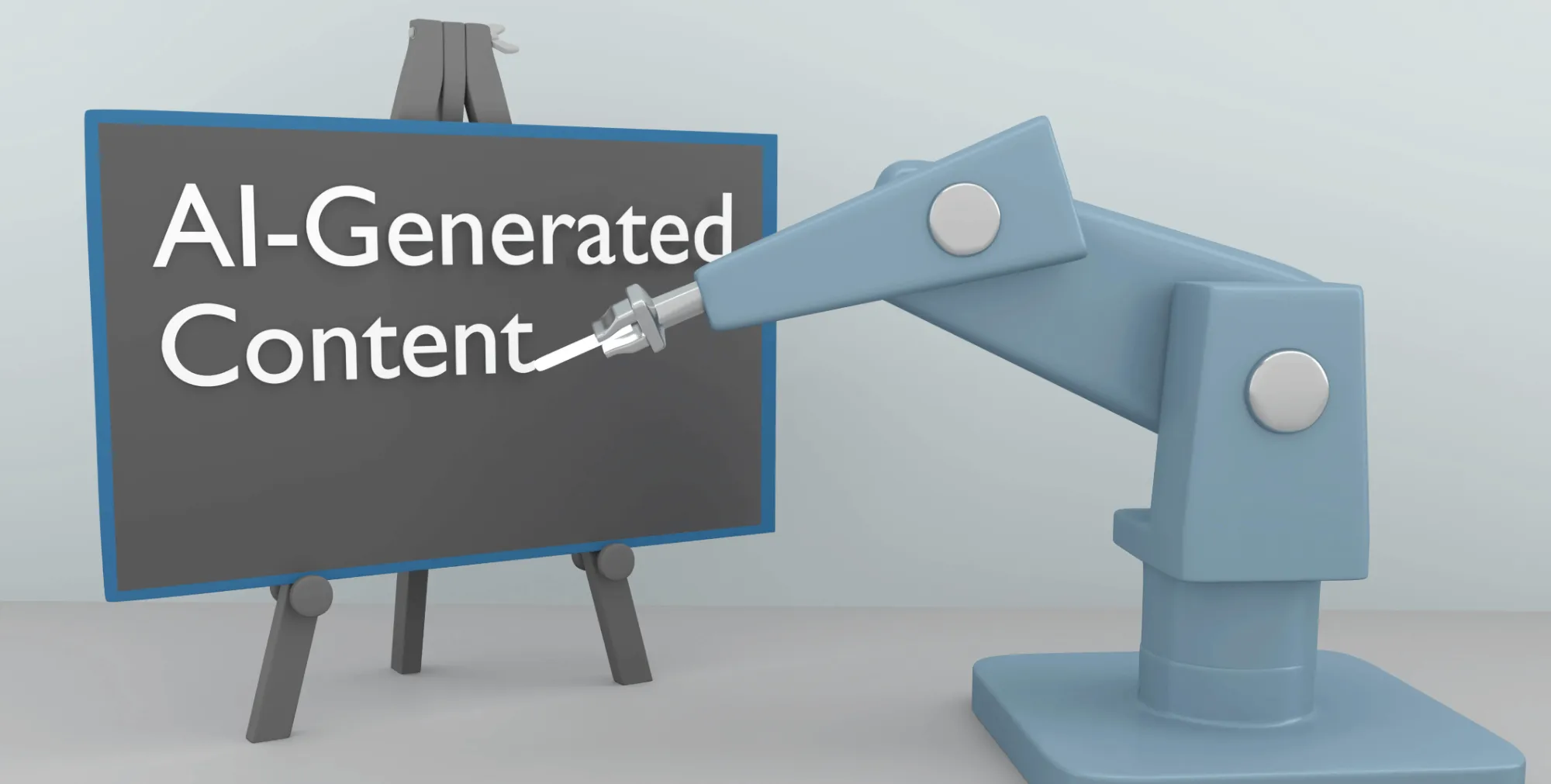
- Efficiency: AI can create content at a much faster rate than humans, saving time and resources.
- Consistency: AI maintains a consistent tone and style across a large volume of content.
- Scalability: It can generate vast amounts of content to meet high-demand needs.
- Data-Driven: AI can analyze data to produce content tailored to specific audience preferences.
- Reduced Workload: Allows human writers to focus on more complex and creative tasks.
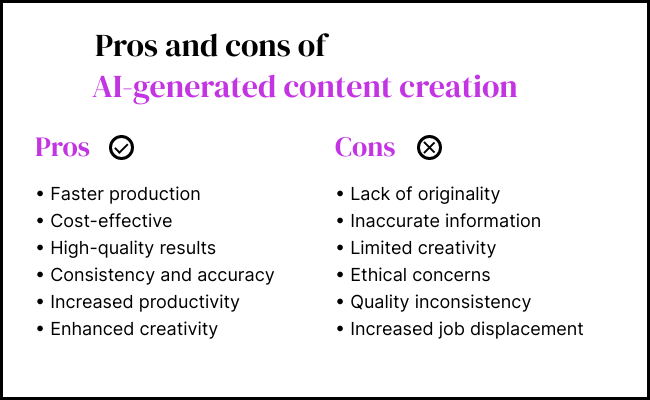
- Lack of Creativity: AI may struggle to generate truly original, creative content.
- Limited Context Understanding: It might not grasp complex nuances, cultural references, or subtle cues in the way a human writer would.
- Inaccuracies: AI can produce incorrect or misleading information, especially if the input data is flawed.
- Impersonal: Content may lack the human touch, making it less engaging or relatable for some audiences.
- Over-Reliance: Dependence on AI-generated content may hinder the development of human writing skills and creativity.
-
5. AI-Targeted Ads:
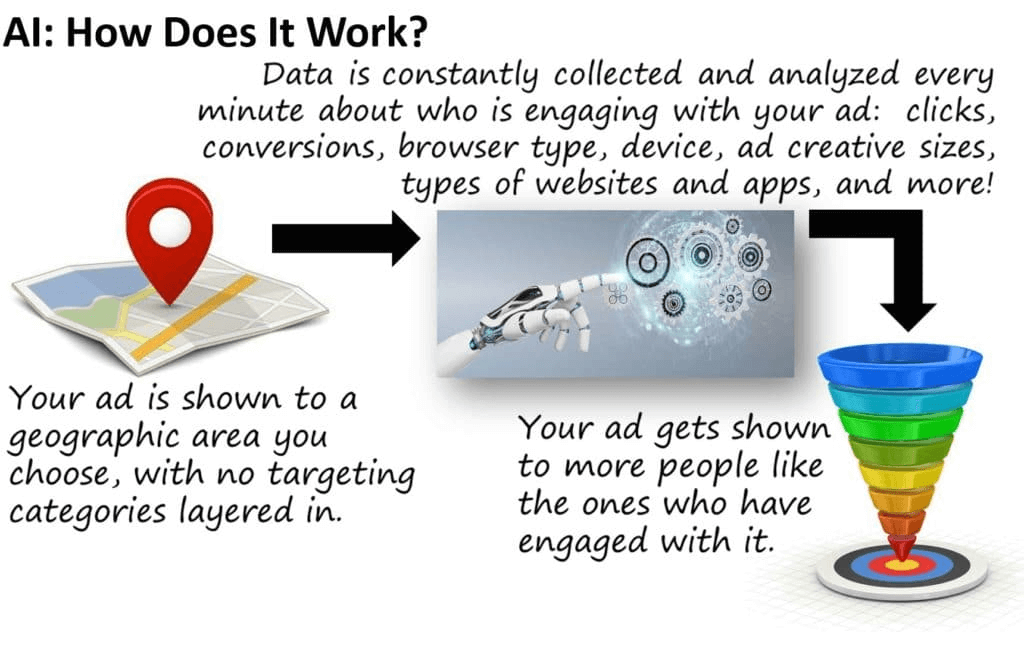
-
6. AI-Based Voice Search:
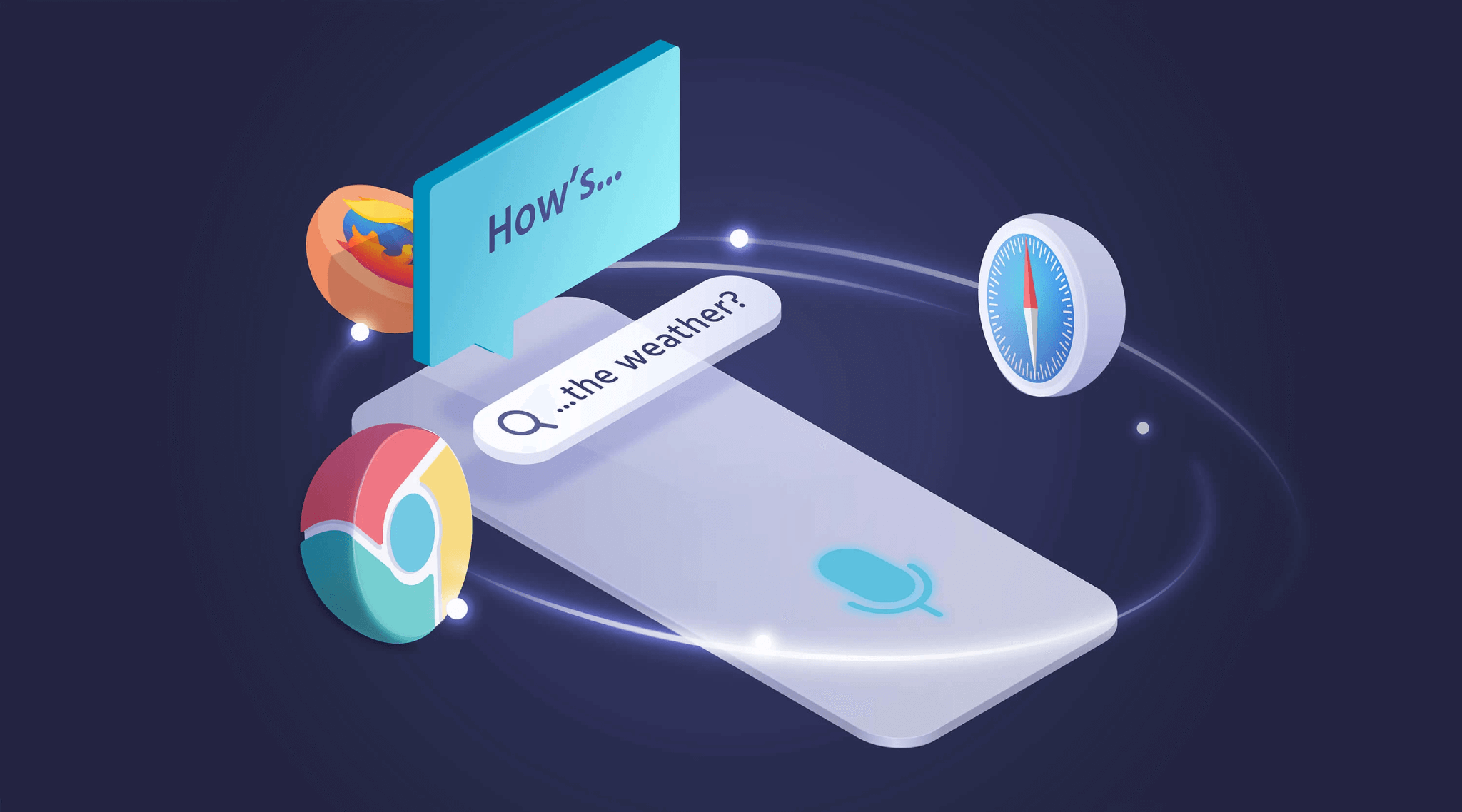
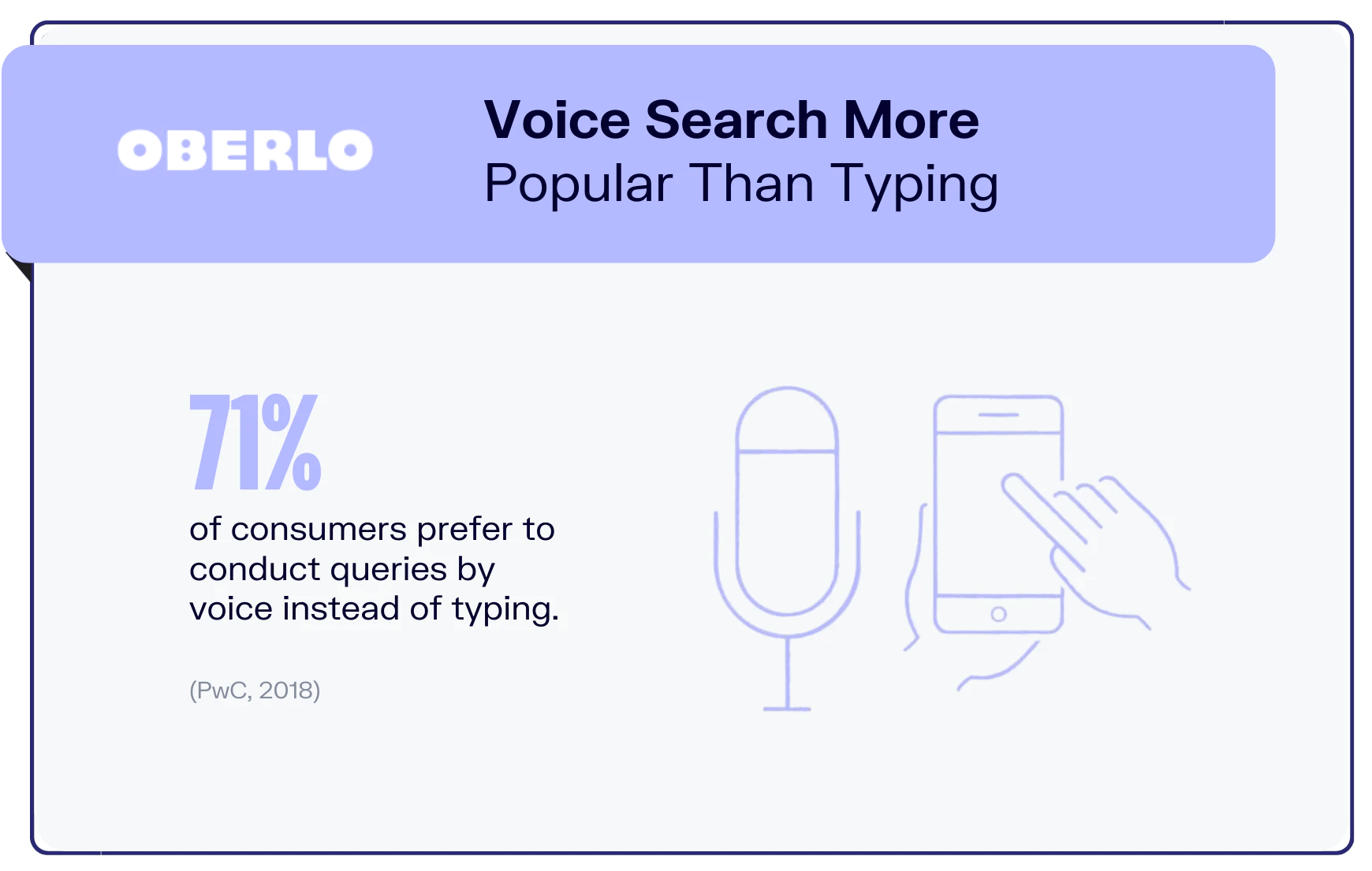
-
7. AI-Based Image/Video Recognition:
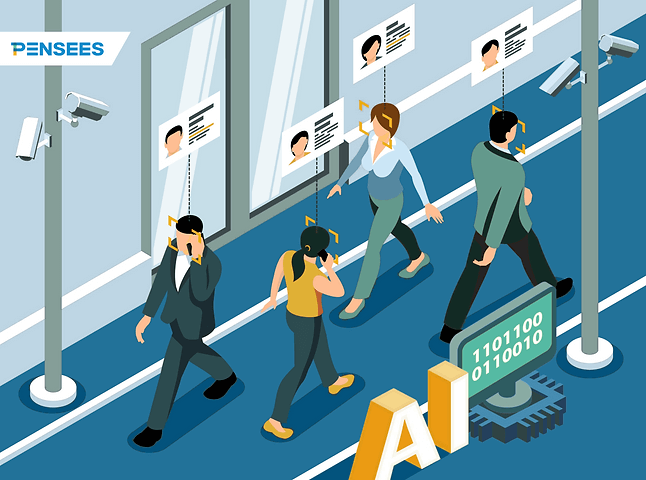
-
8. AI-Powered Fraud Detection:

-
9. AI-Driven A/B Testing:

-
10. AI-Powered Marketing Automation:





